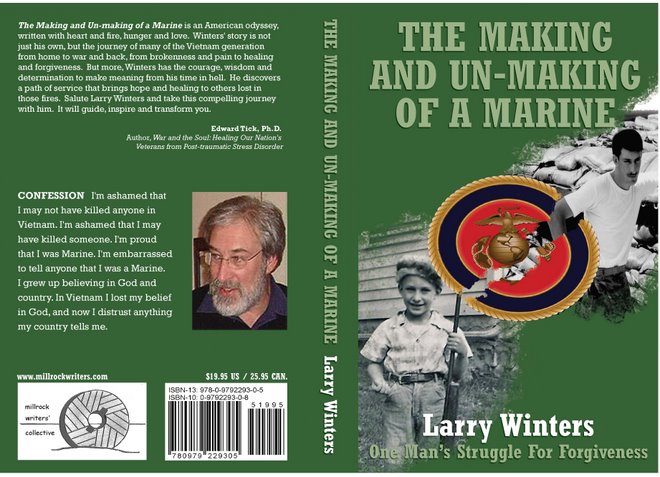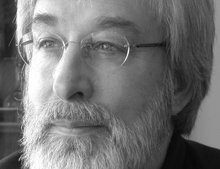Monday, August 20, 2007
Hard Question
I must admit this was not an easy question to address. What I said was, you are a member of the society that sent these men and women to war. You may not have voted for those who sent them but this does not excuse you from the responsibility for there care and healing when they come home. If history repeats its self returning vets have shown up in high number in the homeless population, in the addicted population, in our homes with incident of domestic violence. You and I as members of this society are paying with our dollars for this social unrest. We may not have voted to have a crack addict rob our home but it happens.
Wednesday, August 15, 2007
Post Traumatic Stress Disorder or Post Traumatic Society Diorder
PTSD Workshop
Post Traumatic Stress Disorder or Post Traumatic Society Disorder
We have given our veterans behavior a name, Post Traumatic Stress Disorder or PTSD. In 1980 PTSD became a diagnosis in the Diagnostic and Statistical Manual of Mental Disorders or DSM II at that time. This was seen by many health care professionals as making great strides for combat veterans now they were eligible for the treatment they had urgently needed since the ending of the War five years earlier. Finally effects of war trauma on soldiers which had been previously called “Shell Shock,” or “Solders Heart,” became legitimized and the VA was held responsible to treat this disorder.
I believe what was unseen at the time is that by declaring PTSD an illness of the individual and placing it in the mental health manual for the treatment of individual illnesses, we affectively isolated the problem into the category of a personal treatment. This places the onus of healing on the patient and the patient’s treatment team.
I will be presenting the above material on PTSD at the
The 9th annual Kateri Tekakwitha Peace Conference
"Hope and Resistance - Transforming the Course of History" will be held on Friday evening, August 17 and Saturday, August 18, 2007. Please join us in this Interfaith conference, featuring Stephen Eric Bronner and Fr. Louis Vitale OFM at the National Kateri Tekakwitha Shrine in
Post Traumatic Stress Disorder or Post Trauma Society Disorder?:
A Deeper look at PTSD By Larry Winters
Location: Dinning Hall
PTSD is a diagnostic term that comes out of the DSM-!V, a mental health manual. It stands for Post Traumatic Stress Disorder. I propose that PTSD should stand for Post Trauma Society Disorder.
This workshop will look at our returning soldiers and the obligation our society holds in healing these men and women. In fact this obligation goes well beyond parades, VA hospitals, and military metals. If we as a society don't reach down into our souls, we will never understand our returning men and women with PTSD nor the continuing disorder in their lives. PTSD is also seen as infectious adversely effecting our families, community, and nation. Until we fully accept our societal responsibility neither our returning military personnel nor our nation will have peace.
Questions we will ask in this workshop:
- What do these men and women soldiers need?
- How can we learn to listen to pain we'd rather turn off?
- What do we do with the pain they will deliver to us?
- What does honor really mean?
- How do we accept the life and death reality of what our soldiers have done and must live with?
- How do we remove politics from our souls and see our soldiers as human beings?
- What does it mean to have a warrior in our house, at our work place, and in our communities?
Larry Winters was born and raised in New Paltz, NY. Larry entered the United States Marine Corps after high school and served in
Email: winters.lawrence@gmail.com
Blog: makingandunmaking.blogspot.com
Sunday, August 5, 2007
Post Traumatic Society Disorder
Comments welcome:
Larry
Saturday, July 28, 2007
The War Tapes
Blog July 28, 2007
Last night I watched a documentary titled The War Tapes directed Deborah Scraton and produced by Robert May. This film was shot by Army soldiers in
As a
Tuesday, July 24, 2007
No Roads Lead To Nome
I have had some time to reflect about the
The shamanic way has as it central theme nature and the need for human beings to have the highest spiritual reverence for it, all of this is driven by survival, will we eat, will we be warm, will be survive the storm. What is becoming apparent is our modern culture has lost this wisdom we worry very little about our basic needs. Although what keep hearing in the news is issues about global warming, drought, food shortages, and war, all which threaten our survival.
As our environment deteriorates and food and clean water become less available the need for reverence needs to return to us at a soul level. As we look into our world for those who hold this wisdom, those stewards in this forgotten realm, it is obvious that the native peoples are closest to this understanding. The very people we deem as primitive. If you’re thinking it’s the skills we need, you’re off base; we can easily recapture the skill and even improve on them. It’s the spiritual way of being they still have access to, the ability to honor nature and not be as ego driven as we are. This is what the native people still have a faint hold on.
Saturday, July 7, 2007
The Way of the Human Beings
Before I left for
I highly recommend this book to anyone interested in PTSD, in either population.
Larry
Tuesday, July 3, 2007
Vet's In Alaska
I am getting ready to leave Noam Alaska after ten days of teaching and learning. The first four days I taught a group of Native Alaskan heath care workers about Directive Group Therapy, a form of group psychotherapy that I have developed working at
The remainder of the time my wife Helise and I spent visiting Native villages and enjoying the fantastic landscape. Each place I sought out veterans to speak with. I am hoping to put together a vets gathering here in Noam next year with the help of my friend Greg Smith who works for Norton Sound Health Corporation. Greg was an invaluable contact person who set up my coming to Noam.
Yesterday Greg and I flew in a bush plane out to the small

